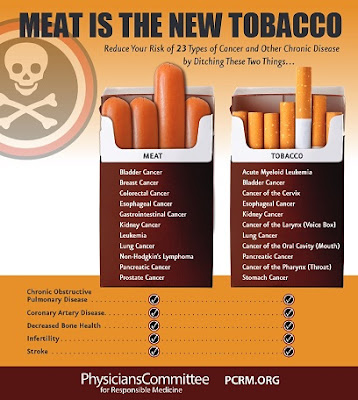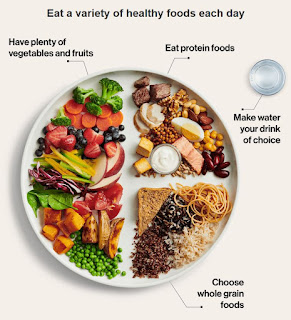Here's my numbers from September 2019...
- Cholesterol 7.10 - should be between 2.00-5.19 mmol/l - eek!!!
- LDL 4.98 - should be between 1.50-3.40 mmol/l - nooooo!!!
- HDL 1.48 - should be greater than 1.19 mmol/l - check!
So... while my HDL (good cholesterol) was good... the rest of the numbers were bad. Very bad. LDL cholesterol is the bad cholesterol and it was clearly in trouble. And let's not even talk about the total cholesterol number.
For Americans, who use a mg/dl system (still metric but different than Canada and the UK)...
- Cholesterol 274 mg/dl - less than 200 is good, more than 240 is high
- LDL 192 mg/dl - less than 100 is good, more than 160 is high, more than 190 is very high
- HDL 57 - more than 60 is ideal, but 40 or more for men and 50 or more for women is acceptable
Sheesh... no wonder my doctor was freaking out and muttering things about statins and what not. Last year, after we got my results, I told him that I wanted to see what I could do with dietary changes and he agreed. He gave me three months...
But... from September - December, we also went on a modified Keto/Paleo eating plan because a chiropractor (I know, I know!! Face-palm...) told us that it would be good for reducing my partner's inflammation and chronic pain. No carbs or sugars but eat as much meat and fats as you want. I don't even want to think what my numbers would have been in December.
Let's just say... the Keto/Paleo thing did nothing for inflammation and sent my gut into a tailspin. I even went and saw a dietitian at the hospital because my doctor thought I might be having a flare-up of IBS. The dietitian almost squeaked when she learned what we were eating and showed me all sorts of charts about the dangers of coconut oil and ghee. Not to mention the carnivorous diet we were on. Luckily... we were near the end of the grand Keto/Paleo experiment and... went back to normal eating in mid-December.
At the same time, we started reading a book by Dr. Michael Greger - How Not to Diet. We aren't normally diet people but... in trying to get the inflammation and chronic pain under control, we were experimenting with different eating plans. At the end of January 2020, we decided make a lifestyle change and embrace whole-food plant-based eating. No meat, no eggs, no dairy, no fish. No animal products of any sort.
We've been on that now for 10 months or so and I am 16 pounds lighter... and, had my cholesterol tested again in mid-November...
- Cholesterol 4.76 - should be between 2.00-5.19 mmol/l - check!
- LDL 3.01 - should be between 1.50-3.40 mmol/l - check!
- HDL 1.11 - should be greater than 1.19 mmol/l - hmmm...
And... in the American scale...
- Cholesterol 184 mg/dl - less than 200 is good, more than 240 is high
- LDL 116 mg/dl - less than 100 is good, more than 160 is high, more than 190 is very high
- HDL 43 - more than 60 is ideal, but 40 or more for men and 50 or more for women is acceptable
 |
| My cholesterol metrics from 2014-2020 |
Right then... doing not too bad for LDL (bad cholesterol) and total cholesterol. The HDL (good cholesterol) is a bit low. I could start eating more good fats - olive oil, ground flax, avocado and... coconut oil.
I can already hear the people saying... "eat coconut oil - it will raise your HDL"! But... take a look at my HDL history... I was eating a tonne of coconut oil from 2018-2019 and... my HDL wasn't much better than in the previous years with no coconut oil. So... I'm not sure that's the solution.
The best way to raise my HDL is apparently high-intensity exercise three times a week. Or I could lose weight. Or I could quite smoking... except I don't smoke... I'm thinking that my HDL number is a reflection of an uptick in a sedentary lifestyle thanks to rainy autumn weather, no gardening activity and generally sitting around in front of the computer.
So, them's my options at this point. In the middle of a pandemic no less... Sigh. I think I see some interval training on beast hill coming up... maybe it's not enough to trudge up the hill once a day (8 minutes)... maybe it's better to go up 2 minutes, down 1 minute... up 2 minutes, down 1 minute... etc. And stutter my way up the hill... It certainly qualifies as high intensity... gasp... wheeze...










